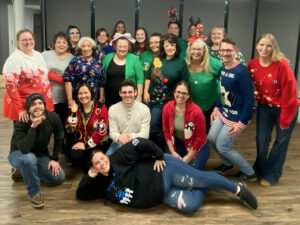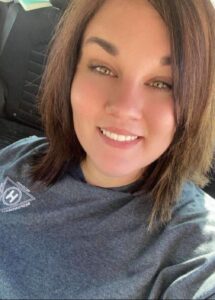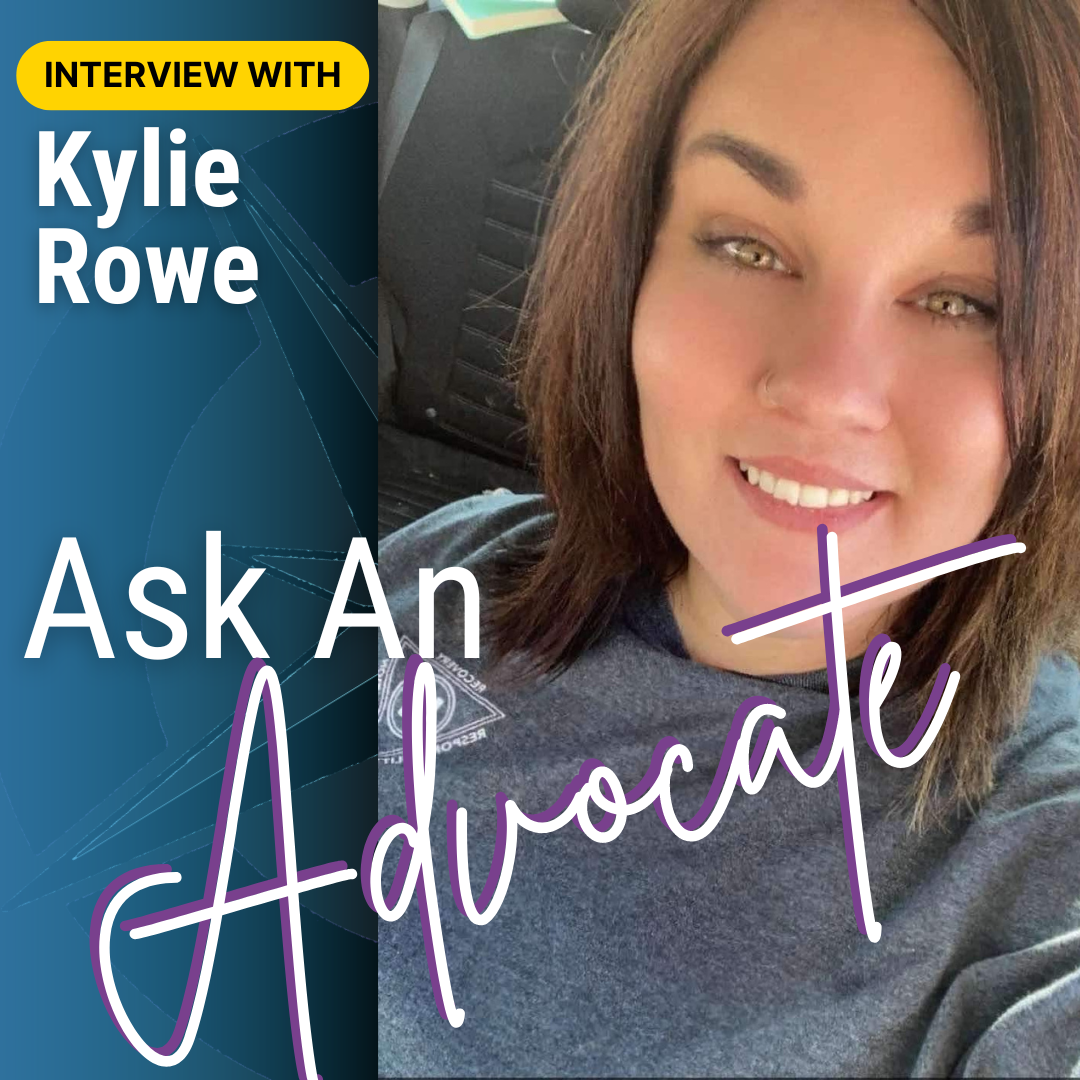We’re thrilled to continue shining a spotlight on the dedicated advocates who work tirelessly to support our clients on their journey to safety and healing. Our ‘Ask An Advocate’ series celebrates the incredible individuals making a difference every day.
In this edition, we’re excited to feature Kylie Rowe, who has recently transitioned into the role of Evening Advocate after nearly a year of compassionate service as an Overnight Advocate. Kylie’s commitment to our mission is inspiring, and we’re eager to share her story and the invaluable work she does.
What do you believe is the most important aspect of your job as an advocate?
“Being a safe person that someone can trust.”
What are some of the key challenges you face in your role, and how do you address them?
“Sometimes it’s disputes between survivors and other times it’s as simple as looking for the missing 10-pound bag of sugar but no matter the challenge, I can lean on and go to my supervisor and coworkers.”
Is there a particular service or program offered by Options that you find especially impactful or meaningful? If so, why?
“The financial help we offer to get survivors back home, whether it be in a different state or just assisting them in finding housing locally.”
Can you share a memorable success story (while maintaining confidentiality) that highlights the impact of the work you do?
“My first SANE [Sexual Assault Nurse Exam] exam that I was called in for was something I was nervous about but turned into the fuel to my fire. An individual was not only assaulted but was left with nothing – not even shoes on their feet – and just a wish to get back home to their mom which was multiple states away. Being able to say “WE WILL HELP YOU GET THERE” and mean it was an amazing feeling. It was amazing to witness her being able to have an advocate assist her in getting her own belongings (in a safe manner) and be able to send her own her way home with clothes on her back and food in her stomach. Every story is a success if you can take someone and put them into a safe space.”
What has been your favorite training or professional development program you’ve attended/received since working with Options? What did you learn?
 “I learned the most during a presentation from a batterer’s prevention organization, it helped to understand the mind of an abuser.”
“I learned the most during a presentation from a batterer’s prevention organization, it helped to understand the mind of an abuser.”
How do you practice self-care and prevent burnout, given the emotional intensity of the work?
“I make sure to allow myself moments of solitude, if I catch myself becoming negative or less empathetic than I do things to cleanse the mind. I’m a firm believer in messy space messy mind; so often my selfcare is some deep cleaning while listening to positive encouraging podcasts.”
In your opinion, what are the most pressing issues facing survivors of domestic and sexual violence today?
“I think a big issue is lack of support from the law. I once had a survivor who was sexually assaulted and contacted 911 through text. They safely got her out of there via ambulance, but the perpetrator was not arrested even though there were physical, visible injuries on her body and the day previous he was in court for a domestic violence case where he had caused a young woman to get stitches in the side of her head.”
How do you measure success? What does a successful day or client case look like to you?
“A successful day for me is knowing that every conversation/situation I tried my hardest, but nothing beats the appreciation and gratitude that we receive, even if it sometimes looks like just a smile to someone else.”
What is your favorite way that Options raises awareness and educates the community about domestic and/or sexual violence?
“Presentations, events, social media, flyers …every way under the moon.”
What advice would you give to someone who wants to pursue a career in advocacy work for domestic and sexual violence?
“There will never be too many advocates in the world but please make sure you have also taken the time to heal.”
 How do you handle difficult situations? Personally, and professionally.
How do you handle difficult situations? Personally, and professionally.
“Pray it out.”
How has working at the agency impacted your personal views or perspectives on domestic and sexual violence (or stalking, or human trafficking)?
“I’ve learned to be safer and more aware of my surroundings, people don’t want to believe this sort of stuff is happening, but it is!”
What keeps you motivated and passionate about your work, even when it becomes difficult?
“I think my biggest motivation would be my own past experiences, I grew up in a very violent household and grew up watching my mother get abused physically most of my life, which had a very negative effect on my mental health. At the age of 17 I entered an abusive relationship, and I stayed for 8 years. Days can get difficult, but nothing is more rewarding than helping to break the cycle.”
If you need any additional information, have a question, or a concern, feel free to reach out to Options at our 24-hour toll-free helpline 800-794-4624. You can also reach an advocate via text by texting HOPE to 847411 or click 24-Hour Chat with Options.
This grant project is supported by the State General Fund for Domestic Violence and Sexual Assault, sub-grant number 24-SGF-07, as administered by the Kansas Governor’s Grants Program. The opinions, findings, conclusions or recommendations expressed in this publication are those of the author(s) and do not necessarily reflect the views of the Office of Kansas Governor.


